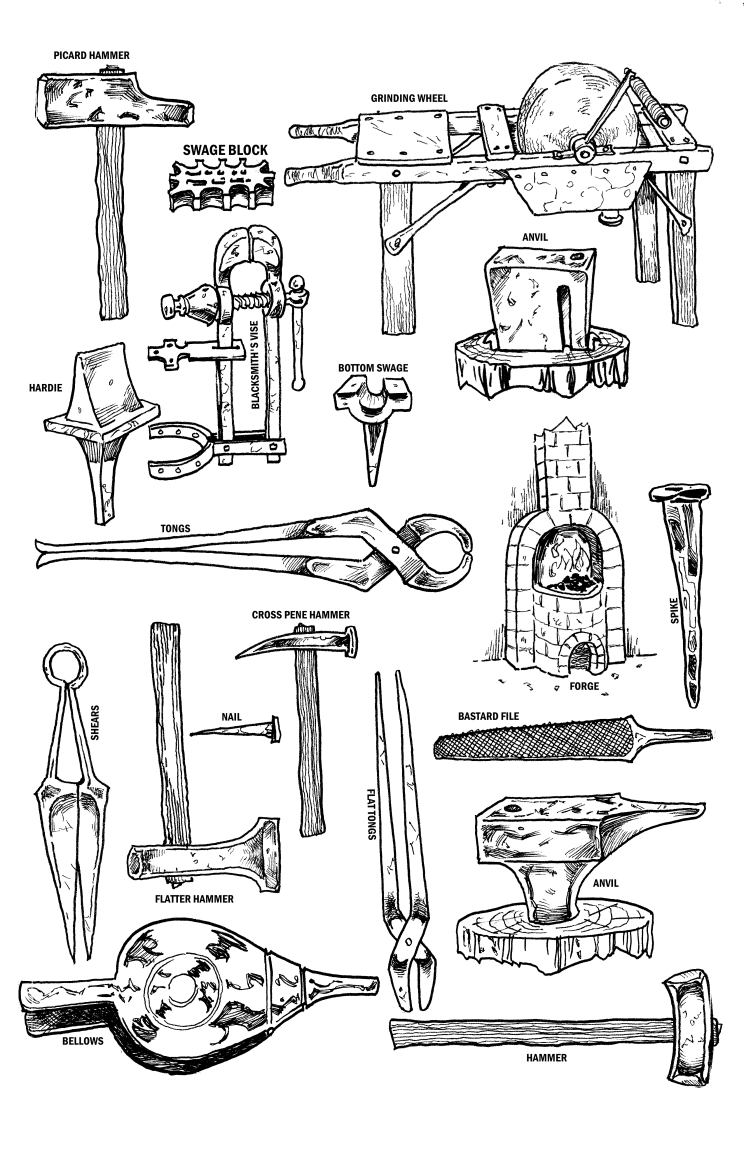
by Scott A. Story
Language
Aenglik is spoken at court and by the peasantry, and there is no language social divide.
Old Karmithian is the language of the courts, Church, and in most written documents. It is rarely spoken outside those spheres. Old Karmithian numerals (I, V, VI, etc.) are still used, although in some educated circles Emirkanian numerals (base ten, include “0” and the decimal) are gaining in popularity.
Money
The standard unit of trade is the silver
regal, the Aorlisian penny. The
imperial is a gold coin, but few are minted and it is more a coin of accounting than actuality. Sometimes coins will be split in two, so a half noble is ha’noble, for example, and it equals 6 taekles.
- 1 imperial = 20 regals, 1 regal = 20 nobles, 1 noble = 12 taekles

by Scott A. Story
Time
The year is 1245, and numbering begins at the Karmithian Accession. Years prior to the Accession are marked down in reverse order, such as year -30 = 30 years prior to year 1, and year -65 = 65 years prior, etc. Modern
Imperial Time is reckoned by each emperor’s coronation, counting forward. The current year is the 4th year in the reign of Emperor Dathan.
Months
- Wintermonth = January
- Hornung = February
- Springmonth = March
- Budmonth = April
- Pasturemonth = May
- Fallowmonth = June
- Haymonth = July
- Reapingmong = August
- Woodmonth = September
- Vintagemonth = October
- Harvestmonth = November
- Holymonth = December
- Harmsway = Leap Year extra day
Days of the Month
- Kalen (Kl) root of "Calendar," the first day of month
- Ides = Middle of month, usually the 15th
- Nones = 9 days before Ides
- Months had three segments of unequal length
- Roman numerals count down backwards from Ides to Kalens
- Roman numerals count down backwards from end of month till Ides
- An example would be 12-10 = 4th day before Ides of Holymonth
Days of the Week
- Saleday = Sunday
- Sylvaday = Monday
- Karraday = Tuesday
- Aurliday = Wednesday
- Rheaday = Thursday
- Amorday = Friday
- Uuliday =Saturday
Time-Keeping
- Matins (during the night, at about 2 a.m. also called Vigil and perhaps composed of two or three Nocturne
- Lauds or Dawn Prayer (at dawn, about 5 a.m., but earlier in summer, later in winter)
- Prime or Early Morning Prayer (First Hour = approximately 6 a.m.)
- Terce or Mid-Morning Prayer (Third Hour = approximately 9 a.m.)
- Sext or Midday Prayer (Sixth Hour = approximately 12 noon)
- Nones or Mid-Afternoon Prayer (Ninth Hour = approximately 3 p.m.)
- Vespers or Evening Prayer ("at the lighting of the lamps", about 6 p.m.)
- Compline or Night Prayer (before retiring, about 7 p.m.)















Comments